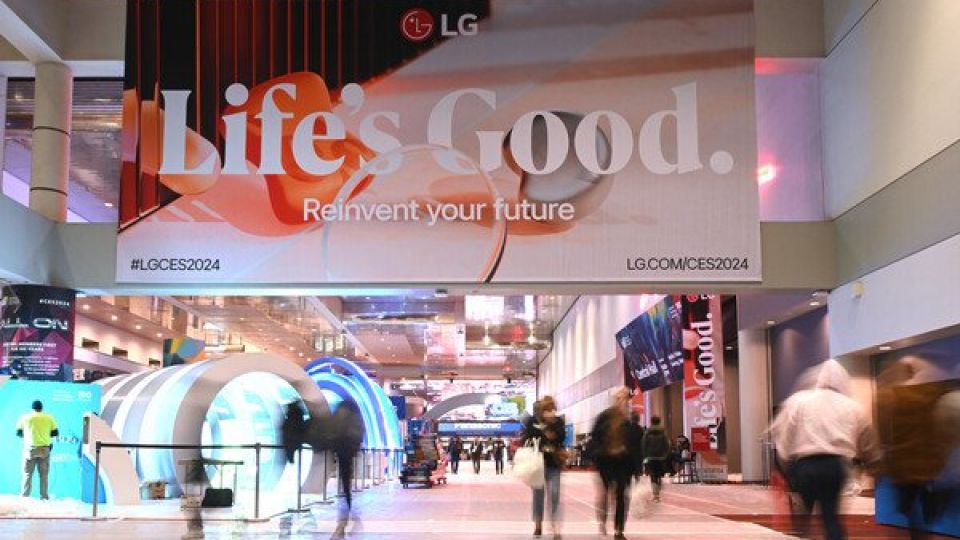January 30, 2024
SEOUL – South Korea’s top conglomerates are announcing their plans for employee compensation for 2023 following mixed earnings reports last week.
LG Electronics, which posted another year of record sales, pledged to give out hefty bonuses to employees, while the nation’s top two chipmakers, Samsung Electronics and SK hynix, hit hard by a chip slump last year, seem to be tightening their belts, reducing spending including on employee benefits.
LG Electronics, the crown jewel of the nation’s fourth-largest conglomerate, decided to pay big performance bonuses to its employees beginning this year, as the company achieved its highest sales for three consecutive years, according to industry sources on Monday.
Employees at the Home Appliances and Air Solutions business unit are known to be offered incentives worth a whopping 445 to 665 percent of their basic salary – 1/20 of the annual salary. The Living Solutions department in charge of washing machines is expected to enjoy the highest rate.
The H&A business unit recorded sales of 30.1 trillion won ($22.5 billion) last year, beating its US rival Whirlpool to secure the top spot in the global home appliance market.
Employees at the company’s Vehicle Solutions business unit, in charge of electric vehicles and EV components, will receive a performance bonus worth 455 percent of the basic salary. The unit, which celebrated its 10th anniversary of establishment, witnessed its sales surpass the 10-trillion-won mark for the first time last year.
The company decided to give bonuses of 200 to 300 percent for the Home Entertainment business unit in charge of TVs and 135 to 185 percent for the business-to-business unit.
In the meantime, Samsung Electronics, the nation’s largest company in market capitalization and the world’s largest memory chip maker by revenue, has no plans to pay incentives for the chip business unit that suffered a plunge in profits last year.
“This is the first time that the DS (chip business) division has gotten no OPI incentives since the program was launched in 2000,” a Samsung official said on condition of anonymity.
Samsung’s chip business division used to enjoy hefty incentives worth some 50 percent of salaries every year in recent years. It is rare for its employees to receive zero bonuses. Under its OPI reward program, Samsung uses 20 percent of the firm’s excess profits to pay workers up to 50 percent of their salaries every January.
Samsung also runs a target achievement incentive, or TAI, program that offers workers up to 10 percent of their monthly salary as an incentive twice per year.
For last year’s TAI, chip division employees saw their incentives halved to 12.5 percent of their monthly salary in the latter half of last year, when compared to the first half.
Employees at other business divisions will be compensated with modest incentives.
Employees at the Mobile eXperience division responsible for smartphones and mobile gadgets will receive an OPI of about 46 to 50 percent of their yearly salary, while those at the TV division and home appliances division are expected to receive 39 to 43 percent and 10 to 12 percent of their salaries as bonuses.
SK hynix, the chipmaking affiliate of SK Group, the country’s second-largest conglomerate, decided to give incentives of 2 million won and 15 company stocks to its employees to boost morale despite sluggish sales last year.
In the wake of a severe downturn in the chip industry, the world’s second-largest memory chipmaker struggled with losses for four straight quarters until it marked a surprise turnaround in the October-December period of 2023.
For Q4, the chipmaker achieved an operating profit of 346 billion won, and sales of 11.31 trillion won. With the company share standing at around 140,000 won, some 2.1 million won will be offered per person.
The chip giant also doled out productivity incentives amounting to 50 percent of the basic salary to its employees last week.
“We appreciate employees for their efforts during the process of turnaround,” the company said at the time. “We plan to pay PIs (productivity incentives) based on our operating profit ratio confirmed in our final earnings report in January.”
Hyundai Motor Group reportedly has not yet decided on the size of employee incentives. Expectations are high that the carmaker is likely to pay additional special incentives buoyed by record sales of both Hyundai and Kia brands last year.


